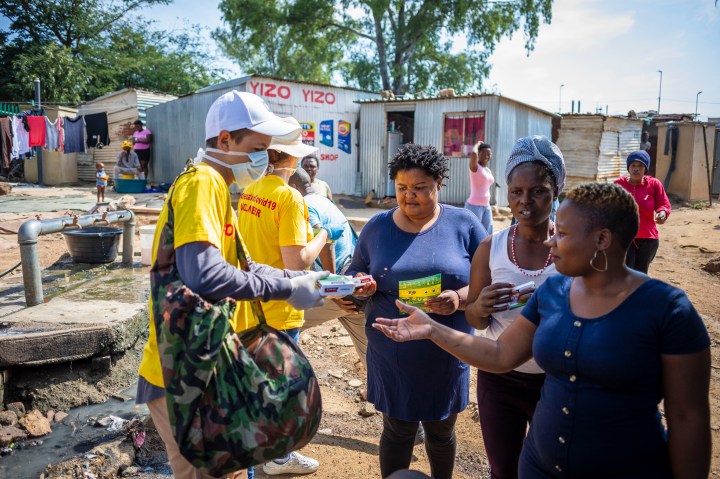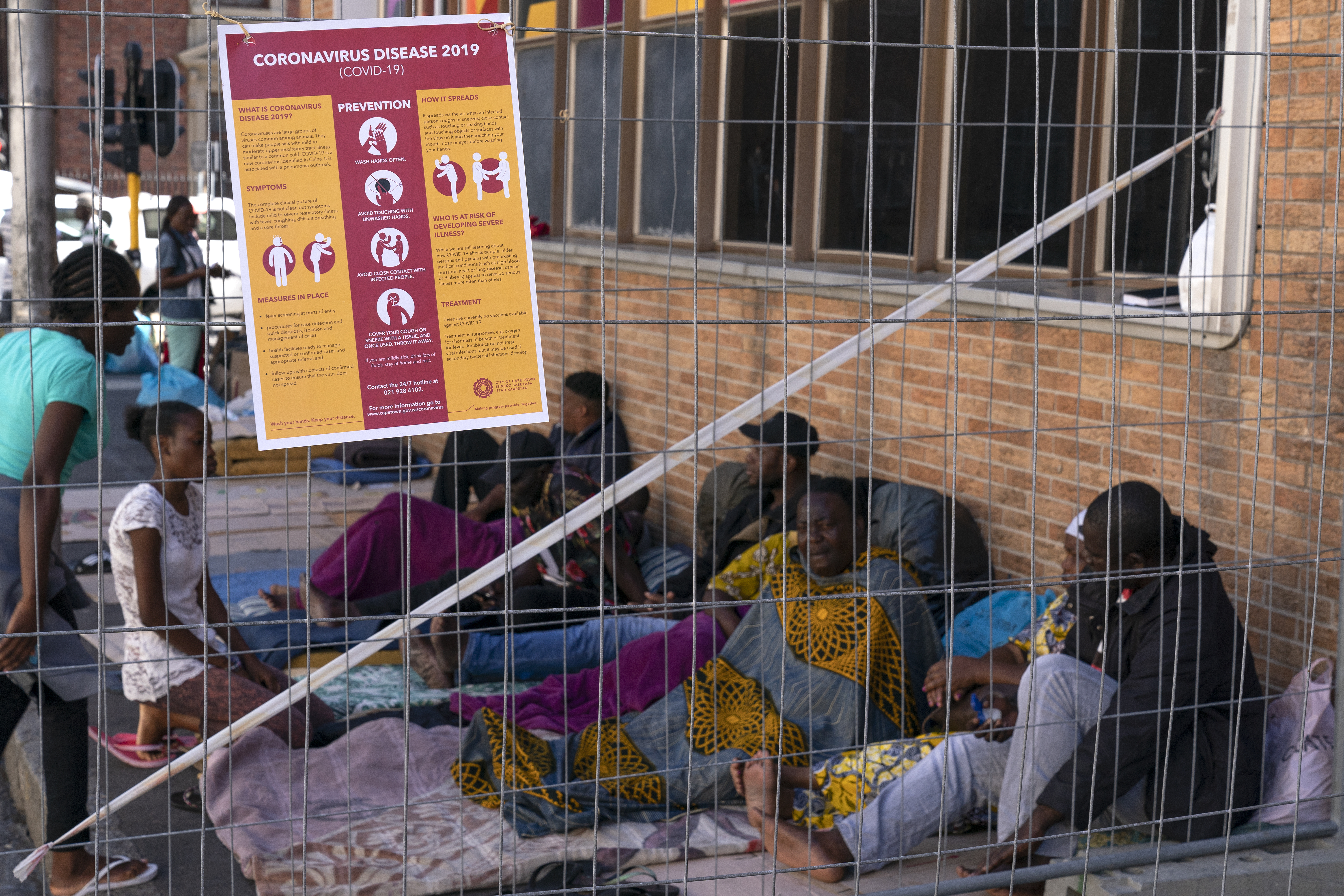Coronavirus: Daily Digest #5
Ramaphosa moves to ‘prevent a human catastrophe of enormous proportions in our country’

Things changed overnight in South Africa on 15 March and again on 23 March, and it won’t be the last time it does. Daily Maverick’s Daily Digest will provide the essential bits of information about Covid-19 in South Africa and the world each day.
As of today, globally, there are 355,874 people who have the virus and 99,377 have already recovered from having it. As of midnight, just over 16, 000 people had died from the virus.
After days of discussion and negotiation, President Cyril Ramaphosa announced last night that the country would go on lockdown. He warned that if measures did not escalate and adherence did not improve, then the country will have hundreds of thousands of infections within the next few weeks.
South Africans will only be allowed to leave their homes to buy food and medicine and to collect social grants and conduct other essential business. Ramaphosa touched on how the government will support business and workers during the 21 days of shutdown and mentioned that the South African National Defence force will be deployed to assist police in making sure people adhere to the new restrictions. He also discussed the funding of all the extra measures and safeguards.
He opened and closed his address by emphasising the consideration and solidarity he has seen already amongst South Africans in general. He hopes it continues. Daily Maverick journalists worked through the night to bring you all the updates and reactions to the President’s speech. Please visit our homepage for the updates.
As Rebecca Davis told Cape Town: if your weekend felt normal, you’re endangering us all.
Some South Africans seem to be finding it difficult to adjust to the State of Disaster regulations introduced last week – even at the risk of a fine, jail time or a heavily burdened social conscience.
Ferial Haffajee asks whether South Africans can swap their hard-wired defiance for the discipline needed to adhere to the new rules. Stephen Grootes reckons the government will need to take more extreme measures as infection rates continue to rise.

Staff at Cape Town Central Library explain to a man the situation regarding book loans, in Cape Town, South Africa, 23 March 2020. The South African government is expected to heighten measures to stem the spread of the coronavirus SARS-CoV-2 which causes the Covid-19 disease. There are currently 274 confirmed cases in South Africa. Fears are high that should the coronavirus, Covid-19 gain traction in Africa it could have a devastating impact on some of the poorest and most vulnerable people on the planet. (Photo: EPA-EFE / Nic Bothma)
Meanwhile, as Bheki Simelane discovered, some churches had mixed responses to the regulations over the past weekend. Some welcomed congregants in with no cap on attendance, while others tried to enforce social distancing and provide hand sanitiser.
Many Alcoholics Anonymous and Narcotics Anonymous gatherings are trying their best to keep their meetings open and safe for recovering addicts who rely on the meetings almost daily. Many communities have shut down their meetings, however, others have remained open as their communities are more fearful of how they’ll cope without the support meetings than they are of the virus.
The chronically ill around the globe, including South Africa, are also trying to cope with their particular vulnerability at this time. An international webinar of specialists, civil society organisations and patients discussed their fear that resources will be taken away from hospice and palliative care units to make way for intensive care. They are frightened that their lives will be seen as “less than”. However, they feel they have invaluable insight into how to manage the end of life at a time like this.
During this time, stress, anxiety and worry are bound to be invasive. Emilie Gambade explains the difference between the three and how they can be managed during the pandemic.
One recommendation is to not stockpile. Last week Trade and Industry Minister Ebrahim Patel put restrictions on the price of some goods and the number of certain goods sold to particular buyers in a bid to stop stockpiling. Sumeya Gasa and Chanel Retief investigated the hidden costs of stockpiling.
As the number of confirmed Covid-19 cases steadily grows, South Africans across the country prepare for an indefinite time of minimal interpersonal relations. This, for many, has meant stockpiling for uncertain times, despite Minister of Trade and Industry, Ebrahim Patel assuring the nation that imports will not be affected. On 19 March, Patel announced regulations to curb stockpiling noting the potentially devastating effects it could have on the nation’s poor. (Video: Chanel Retief and Sumeya Gasa).
A group of public health doctors have written a joint statement explaining why this virus can only be overcome if South Africans stand together.
Civil society movement Abahlali baseMjondolo has also written a statement calling for solidarity and how they will be redirecting all their resources to helping those who live in shack settlements to survive the pandemic.

A man pushes bags of recyclable material he has collected across the city in Cape Town, South Africa, 23 March 2020. The South African government is expected to heighten measures to stem the spread of the coronavirus SARS-CoV-2 which causes the Covid-19 disease. There are currently 274 confirmed cases in South Africa. Fears are high that should the coronavirus Covid-19 gain traction in Africa it could have a devastating impact on some of the poorest and most vulnerable people on the planet. (Photo: EPA-EFE / Nic Bothma)
Amnesty International, CIVICUS and Transparency International have also jointly called for solidarity to ensure clear, fair, co-ordinated and concrete strategies to address this crisis. It is specifically calling on the G20 to use their platform to place human rights at the centre of its response to the pandemic.

An information poster regarding the coronavirus is secured to a fence among refugees from various African nations living on a city sidewalk in Cape Town, South Africa, 23 March 2020. The South African government is expected to heighten measures to stem the spread of the coronavirus SARS-CoV-2 which causes the Covid-19 disease. There are currently 274 confirmed cases in South Africa. Fears are high that should the coronavirus Covid-19 gain traction in Africa it could have a devastating impact on some of the poorest and most vulnerable people on the planet. (Photo: EPA-EFE / Nic Bothma)
Craig Ray has written a special report on how the sports world will navigate these trying times, with a particular focus on South Africa. He predicts South African sport codes will face turmoil in the coming months, but will remain stable for now.
Of 195 countries in the world, there are 173 which have confirmed that people within their borders have Covid-19 and each has a slightly different way of strategising its response to the pandemic. One such strategy is “herd immunity”. Up until last week, the United Kingdom was using this strategy until it was predicted it could result in 260,000 deaths. To understand herd immunity, read further here. DM
"Information pertaining to Covid-19, vaccines, how to control the spread of the virus and potential treatments is ever-changing. Under the South African Disaster Management Act Regulation 11(5)(c) it is prohibited to publish information through any medium with the intention to deceive people on government measures to address COVID-19. We are therefore disabling the comment section on this article in order to protect both the commenting member and ourselves from potential liability. Should you have additional information that you think we should know, please email [email protected]"





 Become an Insider
Become an Insider